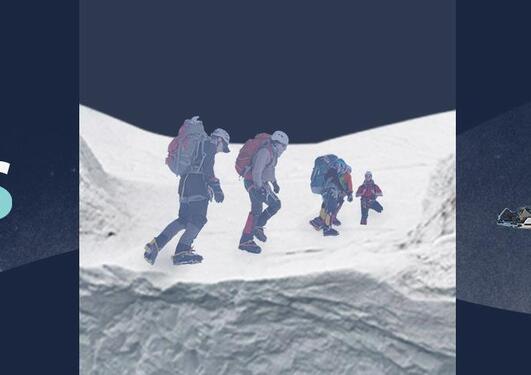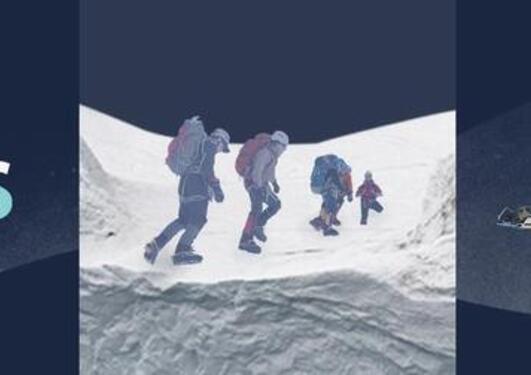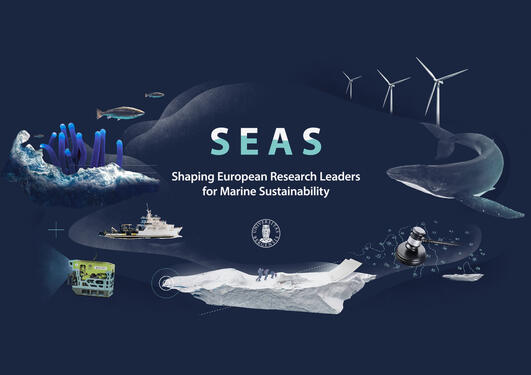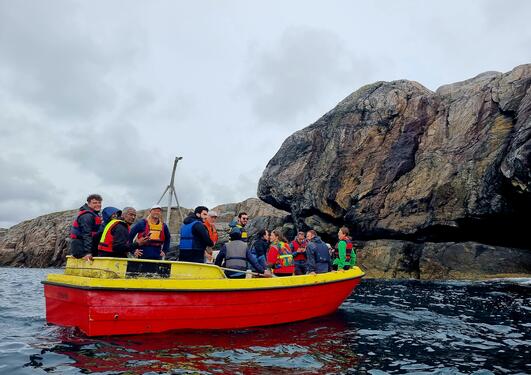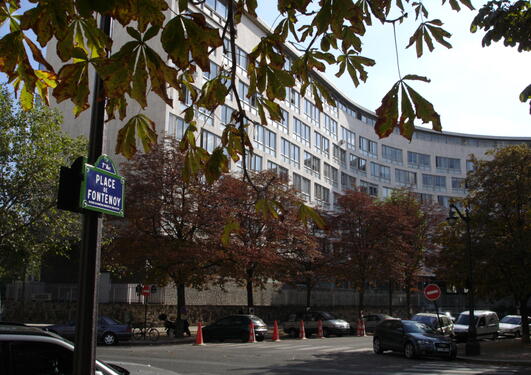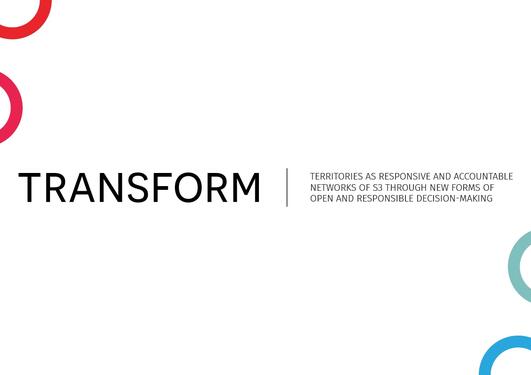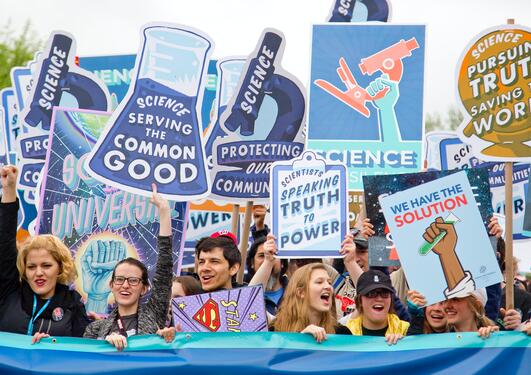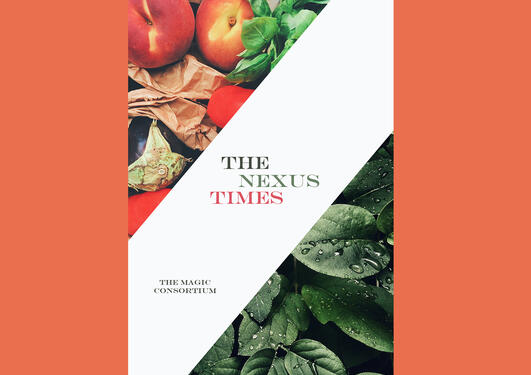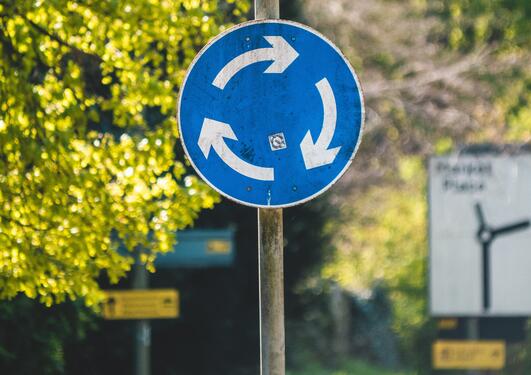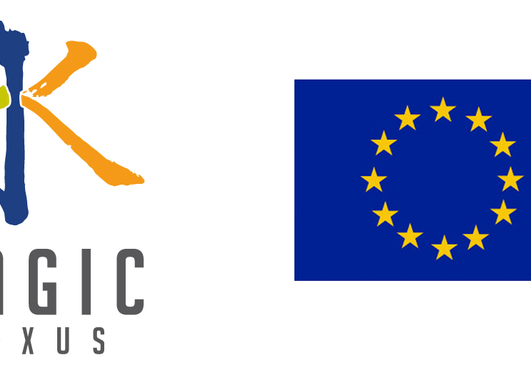Thomas Völker
- E-mailthomas.volker@uib.no
- Phone+47 55 58 27 07
- Visitor AddressParkveien 95007 Bergen
- Postal AddressPostboks 78055020 Bergen
Thomas Völker is a MSCA SEAS postdoctoral research fellow in Science and Technology Studies (STS). His research focuses on environmental governance and on attempts of transitioning towards more sustainable aquacultures. More specifically, Völker is interested in the development of novel feeds as a case of implementing circular economy policies and introducing principles of responsible research and innovation (RRI) in Norway.
From 2020-2022, Völker was one of University of Bergen's representatives in the secretariat for the UNESCO Global Independent Expert Group on Universities and the 2030 Agenda (EGU2030).
Initially trained as a sociologist, in his PhD thesis Völker studied “futuring” practices in transdisciplinary sustainability research from a Science and Technology Studies (STS) perspective. After finishing his PhD at the University of Vienna, he joined the European Commission’s Joint Research Centre (JRC), where he further developed his research interests towards questions about participatory decision-making at the multiple interfaces between science, policy and society. Völker has been working both in academia and policy with his research focusing on practices of knowledge production and circulation in environmental governance as well as on collective experiments with participatory democracy in policy making.
Talk: "Feeding fish to save the world?" STS Talk, Universität Wien, 17 January 2024
Talk: "Towards sustainable and recuperative aquaculture: How are ocean health, politics and society connected?" at the event Vår forunderlige klode - unge forskere forteller, Centre for Digital Life Norway and University of Bergen, 6 September 2023
Presentation of the UNESCO report Knowledge-driven actions: transforming higher education for global sustainability: Kunnskapsdrevet handling – hva kan vi bidra med for å klare bærekraftmålene? 13.12.2022
-> This presentation was also made into a podcast that can be accessed here: Knowledge-driven actions - An interview with Thomas Völker (language: English)
Teaching during postdoctoral fellowship
Talk on RRI in environmental governance at the AFINO Autumn School in September 2023, Jondal.
Previously, Thomas Völker has been teaching at university level and for European Commission institutions.
At the University of Vienna he developed and held the following courses:
- Kulturen der Wissenserzeugung: Von der Wertegemeinschaft zum Marktplatz der Ideen?
- Tempor(e)alitäten: Zur Rolle von Zukunft und Zeitlichkeiten in kontemporären Wissensgesellschaften
- Dangerous Liaisons? Tracing Society in Contemporary Knowledge Production
- 'Who cares what the future brings?' Understanding technoscientific futures
At the European Commission's Joint Research Centre (JRC) he developed and held a course on citizen engagement together with Ângela Guimarães Pereira:
- DG JRC Training on Citizen Engagement in Policyrelevant Science, Technology and Innovation
- (2023). Translating tools and indicators in territorial RRI. Frontiers in Research Metrics and Analytics.
- (2023). Transformative Translations? Challenges and tensions in territorial innovation governance. NOvation – Critical Studies of Innovation.
- (2023). The politics of measurement and the case of energy efficiency policy in the European Union. Energy Research & Social Science.
- (2023). Post-normal science in practice: Reflections from scientific experts working on the European agri-food policy nexus. Environmental Science and Policy. 158-167.
- (2021). “What Was That Word? It’s Part of Ensuring Its Future Existence” Exploring Engagement Collectives at the European Commission’s Joint Research Centre. Science, Technology and Human Values.
- (2020). Datafictions: Or how measurements and predictive analytics rule imagined future worlds. JCOM - Journal of Science Communication.
- (2019). The role of metrics in the governance of the water-energy-food nexus within the European Commission. Journal of Rural Studies.
- (2019). Indicator development as a site of collective imagination? The case of European Commission policies on the circular economy. Culture and Organization.
- (2018). Indicator development as a site of collective imagination? The case of European Commission policies on the circular economy. Culture and Organization.
- (2023). The case for public participation in sustainability transitions. .
- (2020). The Nexus Times. Megaloceros forlag.
- (2023). Translations of Responsibility: Innovation Governance in Three European Regions.
- (2019). The Circular Economy in Europe Critical Perspectives on Policies and Imaginaries.
- (2023). Knowledge-driven actions - An interview.
- (2023). Beyond the Post-it: Citizen Engagement in Policy-Making through Material Deliberation. 20 pages.
More information in national current research information system (CRIStin)
See an overview of Thomas Völker's publications at his ORCID profile.
2020-2022 Territories as Responsive and Accountable Networks of S3 through new Forms of Open and Responsible decision-Making (TRANSFORM), Horizon 2020 - SwafS-2019
2020-21 UNESCO Global Independent Expert Group on the Universities and the 2030 Agenda
2016-20 Moving Towards Adaptive Governance in Complexity: Informing Nexus Security (MAGIC) , H2020-WATER

